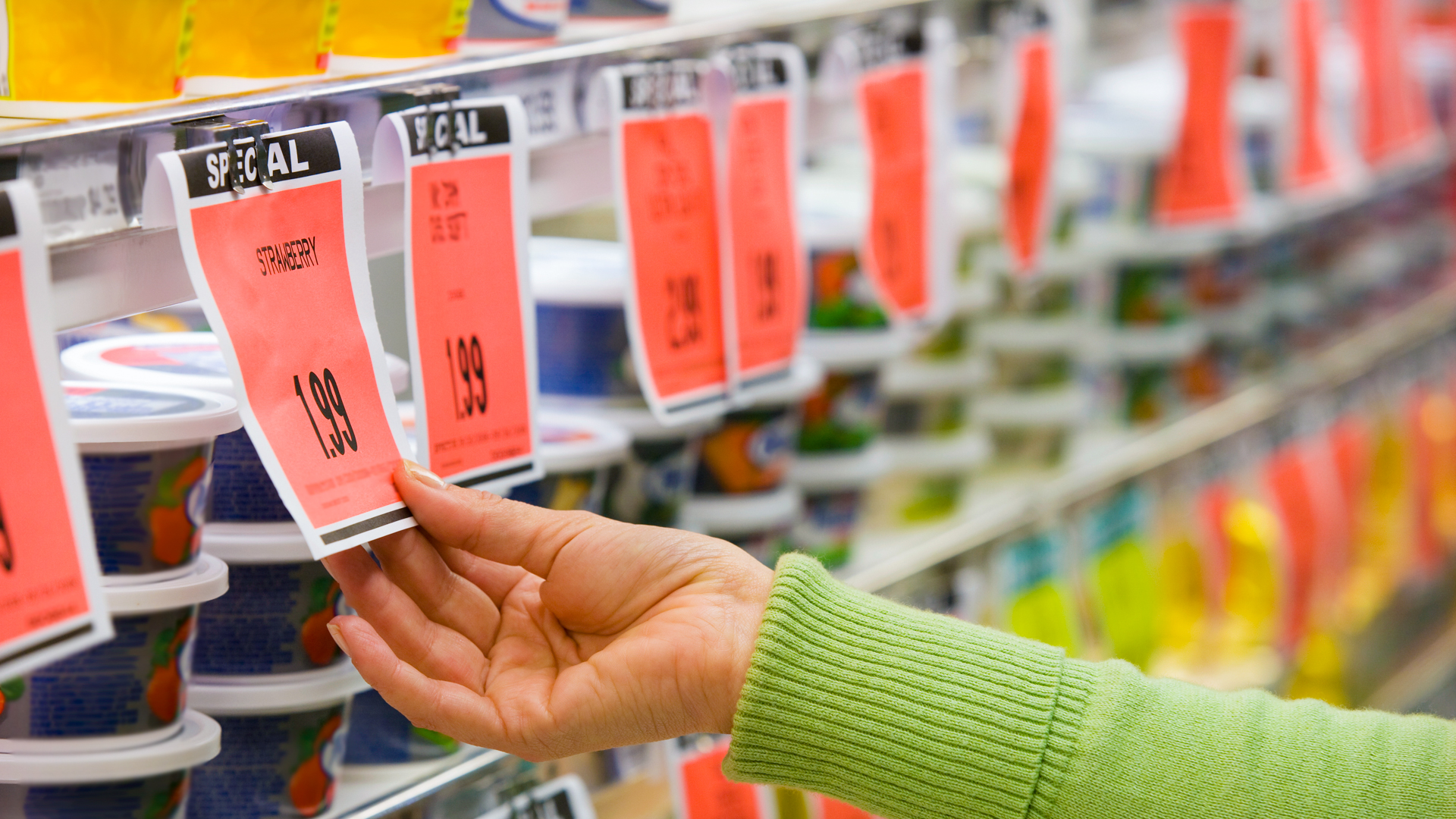Shopping
8 Signs You Are Shopping at the Wrong Grocery Store for Your Budget

When it comes to choosing a grocery store, you’ve got plenty of options. There are low-cost stores such as Aldi, Food Lion and Lidl, and there are pricier stores such as Whole Foods and Wegmans.
Many grocery stores offer great deals, savings opportunities and convenience. But depending on your budget — and even where you live — you might be shopping at the wrong one.
Here are the top signs that you’re shopping at the wrong grocery store for your budget and why it might be time for a change.
Also see costly mistakes you are making at the grocery store.
The Prices Are High
Perhaps the easiest way to determine whether it’s time for a change is to look at the prices of the items on the shelves. If everything you see is expensive, even if it’s of high quality, you could be overspending. And if you already find yourself stressed about your grocery bill, it’s probably time to go somewhere new.
“Of course, the No. 1 reason anyone would or should change where they shop is because of consistently high prices,” said Erika Kullberg, attorney, personal finance expert and founder of Erika.com.
But it might not be immediately obvious that your store is more expensive than it ought to be.
“One thing to watch for here is when you see ‘sale’ items that show the current and original pricing,” Kullberg said. “Sometimes, the original price listed is actually just bumped up, in order to make the saving look better than it is.”
There Aren’t Any Sales or Discounts
In addition to high prices, if your store doesn’t offer any meaningful discounts, it might be time to switch things up.
“Even if a grocery store doesn’t have rock-bottom prices, having plenty of terrific sales can keep you coming back,” said Todd Stearn, founder and CEO of The Money Manual. “Frequent BOGO deals can add up to especially big savings, including BOGO meat deals where you can freeze the extra.”
Kullberg added, “Pay attention to the number of deals and discounts available in store every time you shop. Ideally, you’ll be getting a discount on at least a couple of your regularly purchased items once or twice a month. If you’re not seeing a good variation of genuinely strong discounts, it’s time to move on.”
The Quality Just Isn’t There
“Choosing to shop with a particular grocery store is not just about the low prices but also the quality of products and experience,” said Joanna Clark-Simpson, a consumer researcher.
If the food you buy goes bad quickly, you could be wasting your money. After all, who wants to eat moldy bread or fruit?
Another thing to watch out for is the expiration dates on the products you buy.
“Mistakes happen,” Stearn said, “but, if finding expired food products on the shelves is the norm, that creates the impression that the store doesn’t have good processes in place and makes you wonder what else isn’t being handled properly.”
The Customer Service Is Bad
It’s important to have a good experience at the grocery store. While this might not directly cause you to spend more money, dealing with rude or unhelpful employees can leave a bad impression.
“[Consumers] frequently share frustration about poor customer service and store conditions,” Clark-Simpson said. “Oftentimes, rude employees’ behavior serves as the main reason for a complaint about the store.”
The Store Is Dirty
If your grocery store is unsanitary or dirty, you should probably shop elsewhere.
“People like shopping in clean stores, and that goes double for anywhere food is sold,” Stearn said. “If the areas customers can see aren’t being kept clean, they may wonder what’s going on in the places they can’t, like behind the meat counter and in the stockroom. If this is how your grocery store makes you feel, it may be time to find cleaner pastures.”
Prices Aren’t Competitive
It’s always good to comparison shop, especially if you’re living on a tight budget. Doing this lets you see how your store stacks up against the competition and gives you a better idea of whether you’re spending your money wisely or wasting it.
“If most of your comparison shopping results in finding lower prices at other quality grocers in your area,” Stearn said, “you may want to switch to a store that usually comes out on top.”
The Loyalty Program Is Limited
Most grocery stores offer some kind of a loyalty program that incentivizes people to keep shopping there. These programs generally come with additional savings opportunities, discounts or points for things like fuel.
But not all loyalty programs are created equal, and you could end up saving more money by shopping elsewhere — depending on the program your store offers.
“It’s easy to set it and forget it, but the truth is that a good loyalty program will be hard to forget because you’ll be seeing credits pop up once every couple of months or so if you’re shopping each week,” Kullberg said. “Don’t waste time on stores that leave you wondering how many points you’ve accumulated, and when the discount is coming.”
You’re Spending a Lot on Gas
Think about where your store is located as well.
“Location also matters — even the most attractive grocery store might not be the best option if it is not conveniently situated,” Clark-Simpson said. “It takes more time to shop and the added cost of travel may make it more costly.”
Even if you’re shopping at a store with overall lower prices, be sure to factor in the time and fuel costs. It might not be worth it to keep shopping there.
More From GOBankingRates







:max_bytes(150000):strip_icc()/roundup-writereditor-loved-deals-tout-f5de51f85de145b2b1eb99cdb7b6cb84.jpg)


